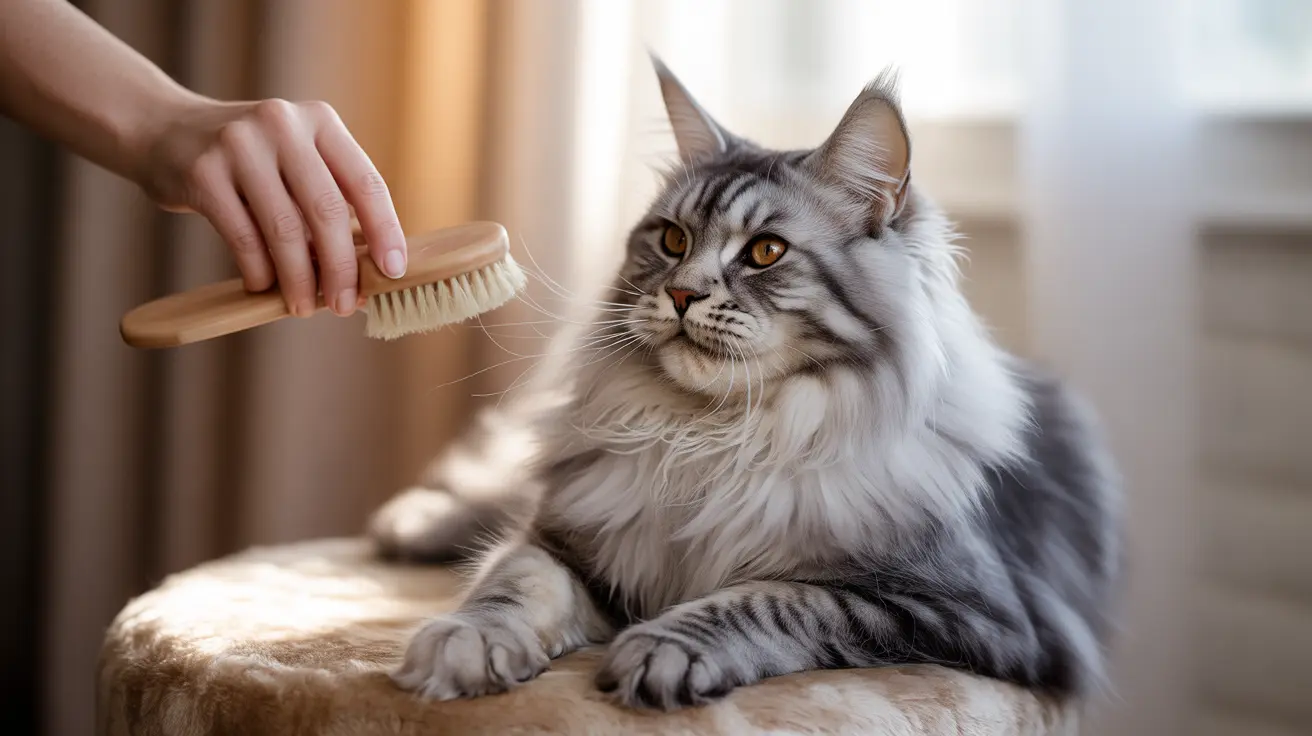If you've noticed white flakes in your cat's fur or on their favorite sleeping spots, you're likely dealing with cat dandruff. While this common condition might seem merely cosmetic, it can sometimes indicate underlying health issues that require attention. This comprehensive guide will help you understand, treat, and prevent cat dandruff effectively.
Understanding the root causes of cat dandruff is crucial for proper treatment. From environmental factors to health conditions, various issues can contribute to those pesky white flakes. Let's explore everything you need to know to restore your cat's healthy, flake-free coat.
Understanding Cat Dandruff: Causes and Symptoms
Cat dandruff develops when your pet's skin produces excess dead skin cells or when natural skin renewal processes become disrupted. Common causes include:
- Low humidity environments
- Poor grooming habits
- Skin allergies or sensitivities
- Parasitic infections
- Underlying health conditions
Beyond visible flakes, watch for signs like excessive scratching, redness, or changes in grooming behavior, as these may indicate more serious issues requiring veterinary attention.
Essential Steps to Eliminate Cat Dandruff
Improve Your Cat's Grooming Routine
Regular brushing is your first line of defense against dandruff. Use a soft-bristled brush or grooming mitt to:
- Remove loose skin cells and distribute natural oils
- Monitor skin condition and detect problems early
- Create bonding time with your pet
Create an Optimal Environment
Environmental factors play a crucial role in skin health. Consider these adjustments:
- Install a humidifier to maintain proper air moisture
- Ensure consistent indoor temperature
- Provide clean, fresh water sources throughout your home
- Create comfortable grooming spaces
Optimize Your Cat's Diet
Proper nutrition is essential for healthy skin and coat:
- Choose high-quality cat food rich in omega-3 fatty acids
- Consider veterinarian-approved supplements
- Ensure adequate hydration through wet food options
- Monitor food allergies and sensitivities
Professional Treatment Options
Veterinary Solutions
When home remedies aren't enough, your veterinarian might recommend:
- Medicated shampoos or treatments
- Prescription medications for underlying conditions
- Parasite treatments if necessary
- Specialized diets for skin health
Long-term Management Strategies
Preventing recurrence requires ongoing attention:
- Regular veterinary check-ups
- Consistent grooming schedule
- Environmental maintenance
- Weight management support
Frequently Asked Questions
What are the most common causes of dandruff in cats and how can I identify them?
The most common causes include dry air, poor grooming habits, allergies, and parasites. Look for white flakes in the fur, excessive scratching, and changes in skin appearance. If you notice these signs along with behavioral changes or other symptoms, consult your veterinarian.
How can regular grooming and brushing help to reduce cat dandruff effectively?
Regular grooming removes dead skin cells, stimulates natural oil production, and helps distribute these oils throughout the coat. Brush your cat 2-3 times weekly using appropriate tools for their coat type, paying special attention to areas prone to dandruff.
What home remedies and dietary changes can I use to get rid of my cat's dandruff safely?
Safe home remedies include increasing humidity levels, using pet-specific moisturizing wipes, and ensuring proper nutrition with omega-3 rich foods. Never use human dandruff products on cats, as these can be harmful.
When should I take my cat to the vet for dandruff, and what diagnoses should I expect?
Seek veterinary care if dandruff persists despite home treatment, or if you notice additional symptoms like excessive scratching, hair loss, or behavioral changes. Your vet may perform skin scrapes, blood tests, or allergy testing to determine the underlying cause.
How can I prevent cat dandruff from recurring, especially in indoor or older cats?
Prevent recurrence through regular grooming, maintaining proper humidity levels, ensuring adequate nutrition, and keeping up with preventative care. For older or indoor cats, pay special attention to mobility issues that might affect self-grooming and consider using pet-safe moisturizing products.
Conclusion
While cat dandruff can be frustrating, it's usually manageable with proper care and attention. Remember to address both immediate symptoms and underlying causes for the most effective treatment. If you're ever uncertain about your cat's skin condition, don't hesitate to consult with your veterinarian for professional guidance.






